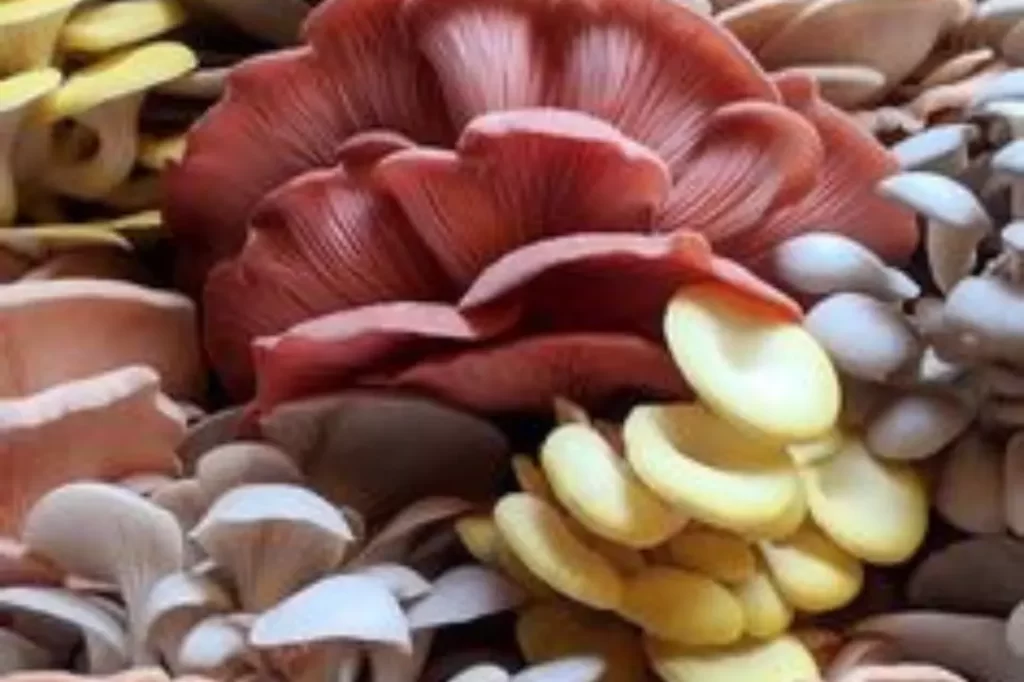Harnessing the Magic of Mushrooms: Cultivation, Benefits, and Eco-Friendly Practices

In the realm of nature’s wonders, mushrooms hold a special place. Beyond their culinary delights, mushrooms play pivotal roles in ecosystems and offer a variety of benefits to human health. From gourmet delicacies to medicinal marvels, mushrooms have been used from centuries. However, their importance extends far beyond the dinner plate.
The Magic of Mushrooms:
Mushrooms, scientifically known as fungi, are a diverse group of organisms that thrive in various habitats worldwide. They come in various shapes, sizes, and colours, each possessing unique properties and benefits. While some mushrooms are prized for their culinary value, others have been used for their medicinal properties for centuries in traditional medicine systems.
Culinary Delights:
Mushrooms are renowned for their rich, earthy Flavours and versatile culinary applications. From the delicate aroma of chanterelles to the meaty texture of portobellos, these fungi add depth and complexity to dishes across cuisines. Not only do they enhance the taste of food, but mushrooms are also low in calories and packed with essential nutrients like vitamins, minerals, and antioxidants.
Medicinal Marvels:
Beyond the kitchen, mushrooms boast a treasure trove of medicinal properties. Certain species have been used for centuries in traditional medicine to boost immunity, improve cognitive function, and even fight cancer. For example, the reishi mushroom is celebrated for its immune-boosting effects, while lion’s mane is prized for its potential to enhance brain function and memory.
Cultivating Mushrooms Organically:
While mushrooms are abundant in the wild, cultivating them offers numerous advantages, including control over quality, variety, and sustainability. Organic mushroom cultivation, in particular, emphasizes environmentally friendly practices that minimize harm to ecosystems and promote soil health.
Quality mushroom farms play a pivotal role in educating enthusiasts about organic cultivation methods. Through training programs and workshops, these farms impart knowledge on selecting the right mushroom species, preparing substrates, managing humidity and temperature, and preventing contamination. By adopting organic practices, growers can produce mushrooms free from synthetic chemicals and pesticides, ensuring a healthier end product.
Eco-Friendly Initiatives:
In addition to organic cultivation, mushroom farms contribute to environmental sustainability through innovative initiatives like vermicomposting. Vermicompost, also known as worm castings, is a nutrient-rich organic fertilizer produced through the decomposition of organic materials by earthworms. Mushroom farms utilize agricultural waste, such as straw, sawdust, and corn cobs, as substrates for mushroom cultivation. Once the mushrooms have been harvested, the spent substrate is recycled into vermicompost, closing the loop and reducing waste.
By repurposing agricultural waste into valuable resources, mushroom farms minimize their environmental footprint and promote circular economy principles. Vermicompost enriches soil fertility, enhances crop yields, and reduces the need for synthetic fertilizers, thereby mitigating the negative impacts of conventional farming practices on soil health and biodiversity.
Conclusion:
In the tapestry of nature, mushrooms stand out as remarkable organisms with profound significance for both humans and the environment. From their culinary allure to their medicinal prowess, mushrooms offer a myriad of benefits that enrich our lives in countless ways. Through organic cultivation practices and eco-friendly initiatives like vermicomposting, quality mushroom farms not only ensure a sustainable supply of this precious resource but also contribute to the preservation of our planet’s delicate balance. As we continue to explore the wonders of mushrooms, let us embrace their magic and nurture a deeper connection with the natural world.
